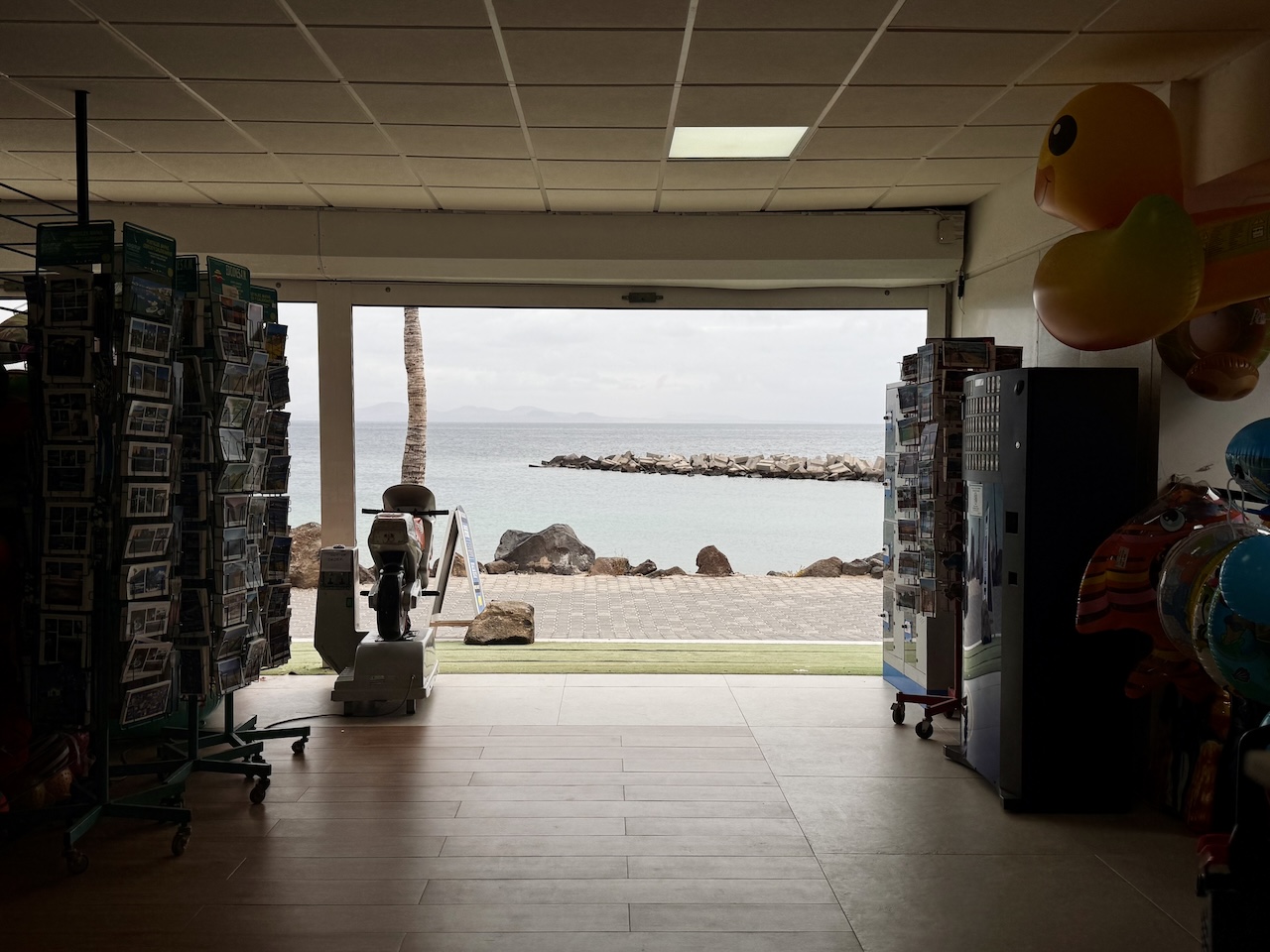
Full image

If you didn't already know, little over a month ago I became a father for the first time.
It's incredible. And it's forever changed my life in more ways than I could ever have imagined. Especially regarding technology.
I was starting to think that I wasn't actually interested in any of it anymore. Because I started to just not have the urge to do anything, no reading blogs, no writing anything, no programming, nothing.
It was weird, since I don't feel that having a child has added that much stress to my life, and it's not like I'm so busy i have absolutely no free time anymore.
After some thinking, I realised that it's not that I'm not interesting it doing any of those things. I want to write on my blog, I want to keep up with other blogs, and I definitely want to keep programming in my spare time. Among a whole bunch of things I used to do day-to-day on my devices.
The problem is that I now need to optimise the technology I use, and the choices that I make, around a new reality. I don't have no time to do anything, I just have a little less time than before, which makes some tasks more cumbersome.
It adds a new level of friction that I wasn't used to before.
The biggest example is my phone. I currently use an iPhone 15 Pro Max. It's a great phone for watching videos, playing games, and for scrolling through social media. But if you've got a baby in one arm, it's near impossible to anything else one-handed.
The same also applies to my iPad to a lesser extent. I have the 12.9" iPad, so that's also not a one-hand device.
And as for my "real" computers, in my MacBook and gaming PC, these don't just require two hands. They require time. I'm not spending 60 seconds on my Mac writing a post for social media, I'm working on a project, going through my emails, writing a blog post, playing World of Warcraft, etc.
What I'm thinking now, is that instead of just letting my hobbies and digital life fade away, I should just adapt to my new situation.
The two device changes I think I will make in the close future will be to buy a smaller phone that I can use one-handed and do all the usual phone-stuff with. And also to buy a smaller iPad. I don't know if that means iPad Mini or the "normal" iPad. But if I'm already feeling friction with the big iPad, the desire for an "in-between" device will certainly grow. Especially as there will no doubt be things that I enjoy doing on a big phone that I won't be able to do anymore.
As for more decision changes, I'm sure a lot of it will be down to adapting my habits, but I think I also need to be more purposeful of the time I spend on my computers.
In a weird way, I think it will fun optimising my for new life.
As someone who regularly switches between various macOS and Linux machines, keeping my dotfiles synced everywhere gets a bit annoying. Fortunately, I've recently come across a tool called Stow from GNU, which helps you manage your dotfiles.
Stow, combined with a git repository, makes managing and syncing dotfiles between devices much, much easier.
To install Stow, you'll likely find it in your package manager under "stow".
For example, for macOS running Homebrew, you'd literally just need to run
brew install stow.
As for using Stow, it's probably useful to first know how it works. That way you'll have a better picture of how it ties everything together.
Let's take this scenario - you have your Neovim configuration saved under
~/.config/nvim like normal.
If you want to synchronise this between devices, then maybe you could just turn that directory into a git repository itself.
But if you have a bunch of configs for tools, some in .config, others inside your home directory, and some just plain config files mixed in there, it can get a bit messy.
That's where Stow comes in. You can have a central place where you store all your configurations for various tools. And then you can then choose to "stow" (load into the relevant directory) the configuration for whichever tool you want.
This means you can have one git repository, with a collection of individually defined packages, which then can be synchronised to various devices. And then on each of these devices, you can choose a subset of these packages to use.
Let's go back to a real world scenario again. Let's say this is your home directory:
.
├── .config/
│ ├── nvim/
│ │ ├── init.lua
│ │ └── lua/
│ │ └── stuff.lua
│ └── tmux/
│ └── tmux.conf
└── .zshrc
You can see there are three different things being configured, Neovim, tmux, and zsh. With Stow, you could have these as three differently defined packages.
Each package in stow, is defined by it being a directory with its name being the package name. Inside the directory would be the folder structure as if it were in the home directory.
This would mean, the above configuration inside a central dotfiles directory, would look like this:
.
├── nvim/
│ └── .config/
│ └── nvim/
│ ├── init.lua
│ └── lua/
│ └── stuff.lua
├── tmux/
│ └── .config/
│ └── tmux/
│ └── tmux.conf
└── zsh/
└── .zshrc
With that dotfile directory, to configure all of these packages in the local machine, you would just need to run this command in the directory:
stow nvim tmux zsh
That command would then load all of the packages, by creating a symbolic link from all the relevant files and folders into the correct place.
To get an example, here is a screenshot showing my .config directory with all the symbolic links, and my .dotfile directory.
Just as a tip, the default behaviour of the stow [package] command, is that it
works when you are in a directory that is one level below your home directory.
You can read the full capabilities of the stow command via the man page, or
via the documentation. However, if you want a simpler life, you can just
do what I do, and create a directory for your dotfiles like this:
~/.dotfiles/.
Once you start building up your collection of config packages, and tracking the directory via git, it becomes really easy to move between machines.
All you would need to do is to pull the git repository, and then use stow to
load whichever packages you wanted to load on that particular machine.
You could even have slightly different versions of a given configuration, and then load a specific version based on the machine you were on. Maybe you have something that fits your use case at work or home, or even a different platform such as Mac or Linux.
Once you start using it, it doesn't take long until you start to feel the benefits.

Definitely looking forwarding to watching Gladiator II after watching the trailer. Although I must admit I didn't expect to hear a song like "No Church in the Wild" by Jay-Z and Kanye West. That threw me a bit.
6 days ago, on the 4th of July, the best thing happened to me.
I became a father.

It appears that the polarisation of social media is leaking into Micro.blog.
This tonal shift highlights what remains an issue with Mastodon. Unlike Micro.blog, it largely replicates the interface paradigms of Twitter, software fine-tuned for polarisation and outrage.
I just watched Perfect Days (2023). I haven't yet fully understood the effect it's had on me. But I think it's one of the best films I've ever seen.
I've been creating a list of what I use my iPhone for, and what would happen if I switched to Android.
For most cases, it wouldn't make any difference. For example, for things like Notes, Email, Photos, etc. I use standard Apple apps, so I'd just as happily use Google apps.
For social networking, entertainment, and all the third-party stuff, everything is available on Android.
However, there are a few minor hurdles that could annoy me. They wouldn't necessarily stop me switching though. But they are things like iCloud Drive, Apple Photo sync, Universal Clipboard, AirPlay, etc.
All of those I can live without. However, even though all of my group chats are on iMessage, most private chats are on iMessage. So that would definitely cause some friction.
Therefore, when iOS gains support for RCS, and you can send photos across much easier between the platforms, there would be nothing major holding me to the iOS platform.
That's not to say I'd switch immediately, and never go back. But I'd certainly feel less locked in.
I do sometimes use a Pixel 6 as my main phone. But it's only ever been for a short period of time. So most annoyances don't really matter as I've usually still got my iPhone near me anyway.
But for a long-term switch. That's not only tempting, but also looking more possible by the day.

For years, CAPTCHAs have helped separate bots from humans. But sometimes, more subtle distinctions are needed.
No surprise that I passed this one!